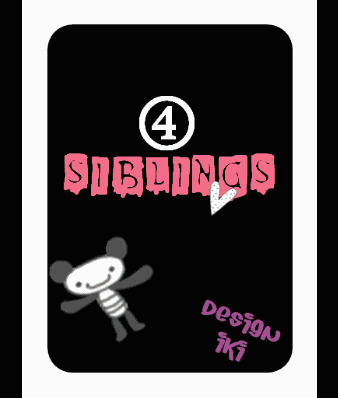Around three-quarters of all teenagers and young adults suffer from acne. However, men and women in their 30s and 40s can also suffer.
The exact cause of acne remains unclear but more is known about how the spots that are part of acne form. And there are more and more treatments to help deal with this distressing condition.
Acne is a skin condition caused by overactivity of the glands that secrete oily substances on to the skin. The blackheads and spots usually occur on the face, where the greatest number of these oil-producing "sebaceous" glands exist. The back, chest and shoulders can also be affected.
Several factors are involved in the development of acne. Central to this are the sex hormones, which are produced at puberty. The male hormone testosterone - found naturally in women as well as in men ? triggers the sebaceous glands to produce more of an oily substance called sebum, making the skin more greasy. However, most acne sufferers don?t have a hormone problem and their hormones are at normal levels in their blood.
When there is an excess of sebum, the area around a hair follicle and the opening through the skin ? the pore ? can become clogged. A bug, a bacterium called Propionobacterium acnes, that lives normally on the skin , can thrive within the blocked pore. This infection causes inflammation, which is responsible for the redness and swelling of a spot. Sometimes as in severe acne, the pocket of inflammation witin a pore can rupture, causing damage to the skin that can result in scarring.
Microcomedone
Drugs such as certain steroid tablets and some beauty products that block the pores can contribute to acne. Contrary to popular belief, acne is not caused by eating fatty food or chocolate.
The spots ![]()
Acne can cause a number of different types of spots. Typically, people with acne get blackheads (comedones). These are caused by a blockage of the pores, which get their dark colour through excess skin pigment.
Whiteheads are also common. These occur near the surface of the skin when excess sebum gets trapped inside the follicle. The sebaceous glands can also become infected.
In this more severe "inflammatory acne", cysts develop beneath the skin's surface. These acne cysts can rupture, spreading the infection into nearby skin tissue. This can result in scarring.
Treatment ![]()
Acne is not a trivial complaint. It can be the source of considerable emotional distress. But there is a range of treatment options to tackle the problem.
Home treatment ![]()
It?s important to keep spot-prone areas clean, so wash the affected area twice a day with an unperfumed cleanser. Antibacterial face washes and soaps specifically for greasy skins are also available. However, the skin needs a certain amount of oil to maintain its natural condition, so avoid aggressive washing with strong soaps.
Also try to avoid the temptation to pick at spots: over-enthusiastic squeezing can cause scarring. Acne tends to be less of a problem in the summertime. This may be due to the sunshine helping to dry the skin. No home treatments for acne will work immediately. It can take weeks, if not months, for significant effects to be noticeable.
Over-the-counter remedies are available from a pharmacy to treat mild acne. Lotions that contain actives such as benzoyl peroxide can help minimize bacterial growth on the skin and encourage it to shed the surface layer of dead skin. Together, these effects make it harder for pores to become blocked and for infection to develop. Benzoyl peroxide (contained in treatments such as Proactiv? and Exposed) can cause redness and peeling, especially to start with but can be minimized with special botanical ingredients.
Prescription medicines ![]()
If you go to your GP, they will often also start treatment for mild to moderate acne with a preparation containing benzoyl peroxide. If this does not work, or if you have more severe acne, there are a range of other treatment options that can either be rubbed onto the skin (topical) or taken in tablet form (oral):
Topical treatments ![]()
There are several topical treatments you may be prescribed.
Azelaic acid, which is an alternative to benzoyl peroxide, which may cause less skin soreness.
Topical retinoids, which are medicines based on vitamin A, and are rubbed into the skin once or twice a day. They work by encouraging the outer layer of skin to flake off, and may cause irritation and skin peeling at the start of treatment. Disadvantages of this treatment include them making the skin hypersensitive to sunlight.
A topical antibiotic lotion applied to the skin can be used to control the Propionobacterium acnes bacteria. Treatment needs to continue for at least six months. Preparations that combine an antibiotic with other acne medication are available. Oral treatments
Oral antibiotics (tablets), taken daily for around 3 months, can be prescribed for inflammatory acne. This acts to kill off the bacteria infecting the skin. The success of this treatment can be limited because the strains of bacteria are often resistant to the common antibiotics. It might take four to six months for the benefits to be seen. Antibiotics do not prevent pores from becoming blocked so treatment to prevent blackheads, such as benzoyl peroxide, is often also prescribed at the same time. Some people find that it?s a prolonged course of antibiotics is a nuisance. This explains whey some people do not always complete the course.
Hormone treatment. For women, a standard combined oral contraceptive pill (containing an oestrogen and a progestogen) can improve acne symptoms. But in some women, it can also make symptoms worse. One particular type of Pill, called Dianette, contains a medicine called cyproterone acetate which cuts the amount of male hormone in circulation and be an effective treatment for acne.
Isotretinoin (Roaccutane) is a powerful medicine known as an oral retinoid - which also exists in topical form (see above). It tends to be used in severe forms of acne that have proved resistant to other treatments. It works by drying up oily secretions. There are a number of side effects of this drug including dryness of the skin, aches and pains and headaches. It can also damage an unborn baby if taken by a pregnant woman. For safety reasons, isotretinoin is only prescribed by hospital specialists.
Acne also affects people with black or brown skin. The processes that cause it are exactly the same but the impact is altered by the skin pigmentation.
Further help
AcneNet (from the American Academy of Dermatology)
http://www.skincarephysicians.com/acnenet/
Acne Support Group
020 8561 6868
http://www.m2w3.com/acne/
Acne Myths ![]()
myth & fact
1. Acne is curable
There is no cure for acne. However, through
the consistent use of treatment and remedies
acne can be controlled or prevented.
2. Sun is great for acne
Sun may temporarily mask your acne, tighten
up pores, or dry up the oil glands. However,
the sun will also damage your follicular
walls clogging your pores. Resulting in
more acne that may not surface for 3-4 weeks
after your sun exposure.
3. Washing your face more often will help
clear up acne
Facial blemishes are not caused by dirt.
Contrary to what you may have seen in commercials,
pores do not get blocked from the top down.
Rather, an entire pore collapses from deep
within the skin, starting acne formation.
Frequent washing does nothing to prevent
this. Over-washing is actually irritating,
and excess irritation can worsen acne. A
washcloth can aggravate this situation further.
Use bare hands to wash and only wash twice
a day.
4. Pizza, chocolate, and other junk food
make me break out
Does chocolate really make you breakout
with acne? What about oily foods? Prevailing
wisdom in the dermatology community is that
diet and acne are not related. Of course
science is never a 100% reliable enterprise.
But at this time, there is no evidence that
chocolate, sugar, oil, milk, seafood, or
any other food causes acne. Some people
absolutely insist that a certain food causes
acne for them, or that a specific acne diet
works for them. In this case, doctors sometimes
recommend that they avoid that food or follow
that diet. Regarding chocolate specifically,
several studies have been performed, and
the answer to "does chocolate cause
pimples?" is a resounding "No".
1. Bacteria is common culprit to all forms of acne.
2. Hey! Your not alone, an estimated eighty percent of the people suffer from some form of acne in their life
3. Did you know there are many varieties of acne? In fact, there are over fifty types of acne. However, the most common form is acne vulgaris.
4. Although many individuals believe the sun makes their acne better, the reality is ultraviolet rays that penetrate the skin's surface can damage the follicles, closing them off and triggering acne two to four weeks after sun exposure.
5. It takes three to four weeks for a pimple to form, therefore, what you ate yesterday does not affect your skin. Hormones and your genes are the main causes of acne.
6. Spot-treating of acne does NOT work. The entire face and involved area must be treated daily in order to prevent new acne lesions.
7. Acne is not curable. It is very treatable. The sooner you begin an individualized treatment program, the faster you have great-looking skin.
8. Most people do NOT outgrow their acne. This, like any other disease, must be treated. You should not ignore this condition.
9. Scrubbing and vigorous washing make acne WORSE. Loofah sponges, Buff Puffs, scrubs containing particles, and strips applied to the skin are all irritating and make acne worse.
10. To remove all of the oil produced by your body, you would have to wash your face every minute. Excessive washing actually causes the body to produce more oil which makes acne worse.
11. Stress does not causes acne, but it certainly can make it worse. Stress can aggravate hormones, which may affect the process of producing new acne lesions.
12. Diet does not contribute to acne in most individuals. Certain foods may cause flare-ups of acne.
13. Acne breakouts are NOT caused by dirt clogging the pores. Acne is caused by hormones stimulating the oil glands, plugging of the pores by dead skin cells, bacteria living in the pores breaking down the oil and causing inflammation.
Basic Acne Washing Routine
Touching
Water
Caloric Intake
Diet
Ice Cubes
Exercise
Sleep
Stress
Before you attempt the other acne treatment techniques you must be sure that you are currently using the proper washing routine. Keeping your face clean requires that you wash it two times per day, three times at the most. You must be very careful to avoid overdoing it. Skin must maintain the proper pH levels to remain healthy. Over washing will make your face dry and irritated causing more breakouts. Many times individuals will vigorously scrub their skin when they wash it. I do not recommend this because such treatment will only serve to irritate the skin causing more breakouts.
Note, acne is not caused by "dirty" skin it is the result of clogged pores infected with bacteria. Therefore, washing alone does not prevent acne. Washing is no mystery treatment, in fact washing alone will not prevent acne. It simply serves to remove dirt and oil at the surface level. Although washing alone may not prevent acne, the wrong type of washing can aggravate acne making it worse.
Follow these recommendations: wash your face by gently rotating your facial cleanser lathered hands on your face. I do not recommend face cloths as they may irritate the skin unless you are using specialized cloth like a microfiber cloth that specifically made for your face. Rinse well with warm water. Using a clean soft towel, gently pat dry your face.
Perhaps one of the most often overlooked remedies. Stop putting your hands by your face! I am often guilty of this resting my hand on the side of my head while reading. Also rubbing or bracing your chin is another common problem when thinking. Avoid rubbing, touching, or itching your skin with your hands. Your hands contain a lot of bacteria that can cause acne flare-ups. Also be careful of the telephone. Clean them often with rubbing alcohol because they sometimes come in contact with the face causing more acne.
It is probably one of the most difficult things to avoid since much of the hand to face contact throughout the day we are unconscious of. Make it a habit to avoid hand contact and be conscious of it during the day to avoid bacteria.
Water helps the body flush out toxins and transport nutrients to the body. Drinking water puts less strain on the skin organ to flush out toxins. The recommended amount of water you should drink is at least half your bodyweight in ounces of water( a 140lb. individual should drink 70 ounces/day ). While water alone will not eliminate your acne it will greatly assist your skin in remaining healthy and that will be one portion of the pie in fighting acne.
We are also pleased to announce some ground breaking scientific research that we uncovered while researching the role of diet and acne. We have discovered several scientific studies that illustrate what many individuals have probably overlooked or are unaware of in their diets today. Specifically it is excess caloric intake (the amount of daily calories consumed beyond those required to sustain your current body weight). You can adversely affect your acne levels through altering your diet, simply by consuming excess calories. Several scientific studies have proven this.
The scenario goes basically like this: the process of increasing your caloric intake is by nature an anabolic process for your body. When this anabolic process is put in motion your natural hormonal levels increase. Yes, that's right your testosterone(responsible for acne) will increase beyond their normal levels within your body. So, you should not be consuming excessive calories in your diet beyond those needed to maintain your current body weight. Recall that increased levels of testosterone will increase sebum production levels that result in more pimples.
And for those individuals requiring scientific proof or others that wish to examine this very important issue further, we direct your attentions to the following scientific study references:
A.N. Chiang, et al., "Excess Energy and Nitrogen Balance at Protein Intakes Above the Requirement Level in Young Men," Am. J. Clin. Nutr. 48 (1988) : 1015-1022.
G.B. Forbes, et al., "Hormonal Response to Overfeeding," Am. J. Clin. Nutr. 49.4 (1989) : 608-611.
G.B. Forbes, et al., "Lean Body Mass in Obesity," Int. J. Obes. 7.2 (1983) : 99-107.
Jebb, et al., "Changes in Macronutrient Balance During Over- and Underfeeding Assessed by 12-Day Continuous Whole-Body Calorimetry, " Am. J. Clin. Nutr. 64 (1996) : 259-266.
Specific foods have not been proven to affect acne. However it is important to note that good nutrition helps the body maintain healthy skin. There have been some scientists suggesting that caffeine products and excessively salty foods aggravate acne in certain individuals. If you notice that certain foods aggravate your acne then the best advice is to limit or avoid them in your diet.
So what foods should you look into? Well, examine foods high in iodine. Watch out for multi-vitamins (some contain iodine). Be aware of some junk foods such as potato chips, corn chips, etc. Keep your diet low in fat and sugar. Eating a properly balanced diet ensures that your body gets the proper nutrients and therefore promotes healthy skin.
Eat plenty of fruits and vegetables. A high fiber, low-fat diet is excellent in promoting overall general health.
Ice cubes to the rescue! Aestheticians as well as some other individuals have reported success from this technique. The trick is to try and catch the pimple before it fully arrives on the surface of the skin. As soon as you feel a pimple forming, ice it! Take an ice cube wrapped in saran wrap and place on the skin portion where you feel a pimple about to form. Hold it there for a few minutes. Avoid prolonged holding as you can get frostbite skin. Perform the above steps three times daily. This technique is effective only on newly forming pimples and rarely useful for existing pimples.
Exercise is good for your overall health. It will increase your blood circulation and bring more oxygen to your major organs including the skin. The benefits you get from exercise are not only physical but to a large extent mental benefits.
Just make sure that you wash your face after an intense exercise session to remove any oil or sweat on your skin that may harbor bacteria, resulting in more acne.
Research has indicated that our hormone levels increase when our sleep patterns are disturbed. Increased hormone levels results in increased sebum production which leads to... yep you guessed it--more acne. It is during our time of sleep that our skin cells begin to be nourished and regenerating takes place the most as the body repairs itself from a long day. Get to bed earlier! Go to bed at least 1 or 2 hours early than you usually do and in a couple of days you will notice your face getting clearer and more healthy.
Individuals have also reported severe acne outbreaks due to prolonged sleep deprivation.
Stress is something that needs to be reduced in your life since it tends to aggravate acne in many people. I have experienced high levels of stress during finals weeks at school resulting in increased levels of acne.
So, how do you lower your stress levels. Aside from eliminating things that cause you stress in your life, look into relaxation techniques. Relaxation techniques are great for stressful situations. You may even look into practicing meditation or yoga to further reduce your stress levels.




















No comments:
Post a Comment